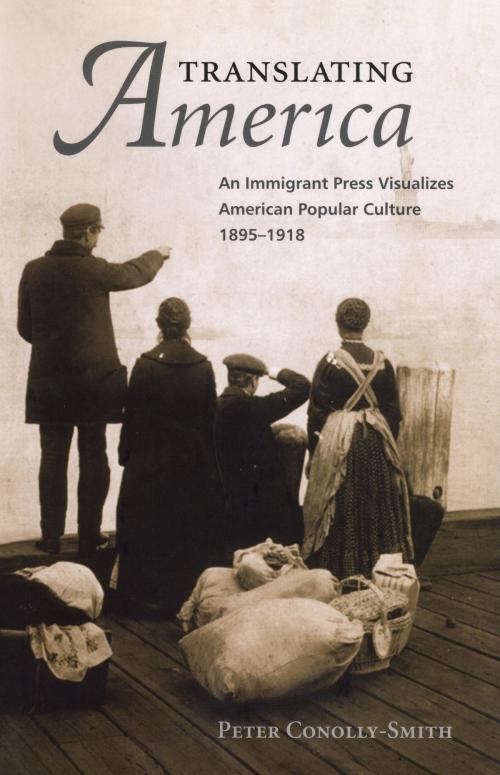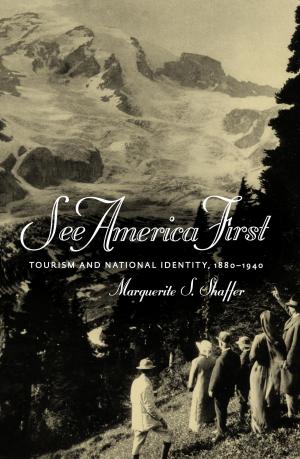Translating America
An Ethnic Press and Popular Culture, 1890-1920
Nonfiction, Social & Cultural Studies, Social Science, Cultural Studies, Emigration & Immigration, History, Americas, United States| Author: | Peter Conolly-Smith | ISBN: | 9781588345202 |
| Publisher: | Smithsonian | Publication: | September 29, 2015 |
| Imprint: | Smithsonian Books | Language: | English |
| Author: | Peter Conolly-Smith |
| ISBN: | 9781588345202 |
| Publisher: | Smithsonian |
| Publication: | September 29, 2015 |
| Imprint: | Smithsonian Books |
| Language: | English |
At the turn of the century, New York City's Germans constituted a culturally and politically dynamic community, with a population 600,000 strong. Yet fifty years later, traces of its culture had all but disappeared. What happened? The conventional interpretation has been that, in the face of persecution and repression during World War I, German immigrants quickly gave up their own culture and assimilated into American mainstream life.
But in Translating America, Peter Conolly-Smith offers a radically different analysis. He argues that German immigrants became German-Americans not out of fear, but instead through their participation in the emerging forms of pop culture. Drawing from German and English newspapers, editorials, comic strips, silent movies, and popular plays, he reveals that German culture did not disappear overnight, but instead merged with new forms of American popular culture before the outbreak of the war. Vaudeville theaters, D.W. Griffith movies, John Philip Sousa tunes, and even baseball games all contributed to German immigrants' willing transformation into Americans.
Translating America tackles one of the thorniest questions in American history: How do immigrants assimilate into, and transform, American culture?
At the turn of the century, New York City's Germans constituted a culturally and politically dynamic community, with a population 600,000 strong. Yet fifty years later, traces of its culture had all but disappeared. What happened? The conventional interpretation has been that, in the face of persecution and repression during World War I, German immigrants quickly gave up their own culture and assimilated into American mainstream life.
But in Translating America, Peter Conolly-Smith offers a radically different analysis. He argues that German immigrants became German-Americans not out of fear, but instead through their participation in the emerging forms of pop culture. Drawing from German and English newspapers, editorials, comic strips, silent movies, and popular plays, he reveals that German culture did not disappear overnight, but instead merged with new forms of American popular culture before the outbreak of the war. Vaudeville theaters, D.W. Griffith movies, John Philip Sousa tunes, and even baseball games all contributed to German immigrants' willing transformation into Americans.
Translating America tackles one of the thorniest questions in American history: How do immigrants assimilate into, and transform, American culture?















